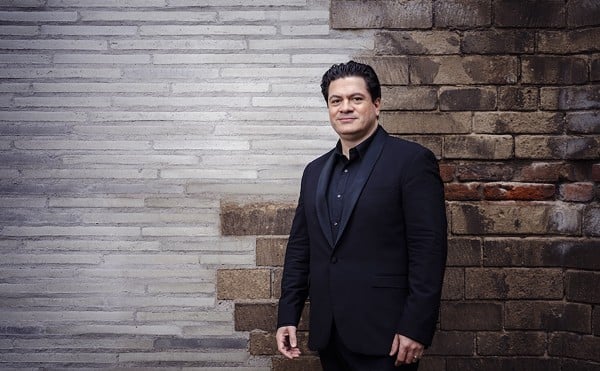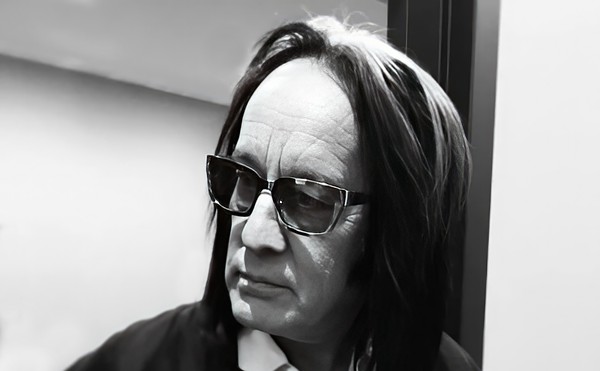Independence is a sought-after yet rarely achieved ideal. If society has taught us anything in this new century, it’s that we’re not as independent as we’d wish. The Internet places the world at our fingertips, and mass transportation allows us to travel around the world in a day, assuming one has both the means and aspiration.
In Rock music, there’s not much difference. Everything is a combination of copies of things that have come before it. Every band is immediately pegged into a genre, satisfying the iPod generation’s thirst for relational listening, rather than reveling in the unique nature of each artist.
This nit-picking game of “music criticism” negates the new by glorifying the old, as if the music being created today is not expressing a unique and fervent flavor of the present, appreciative of but distinct from its musical predecessors.
Tokyo Police Club has emerged out of a crowded Canadian music scene due in no small part to their catchy song structures and flair for independence. The band released two critically acclaimed EPs, one in 2006 and one in 2007, and the major labels sought them out, hoping to land what many deemed as the next Strokes or Death Cab for Cutie. But instead of succumbing to major-label money and heavily-promoted pressure, the band took a much different route, releasing their debut full-length, Elephant Shell, on Omaha-based independent label Saddle Creek, home to such acts as Bright Eyes and Cursive.
Talking with drummer Greg Alsop opened my eyes to a very different aesthetic in place for this quartet of Canucks.
“We were really inspired by what Saddle Creek has done with their hometown scene in Omaha,” Alsop says. “They’ve never tried to dictate an artist’s sound, and we felt like that was one of their main ideals. It just turned out to be a really great fit for us.”
Elephant Shell was released in April of last year with a moderate promotional push both here and in Canada. It received mild critical response, but that didn’t bother the band, which toured heavily in support of the album. This relentless road-based mindset once again struck a chord, and the next thing they knew, Tokyo Police Club were opening for Geek-Rock icons Weezer on their tour late in the year.
More accolades came in the form of a nomination for the Album of the Year at the Canadian Juno Awards. But despite this success, the band remained true to their roots and contributed a song to the Free Yr Radio Compilation, a catalogue of songs from various artists with all proceeds donated to support Independent Radio Stations.
“I think it’s important for terrestrial radio as well as online radio to still have a voice,” Alsop explains. “It’s great to have a market out there for bands like us that can’t rely on commercial radio, which is saturated by music that is pushed by major labels with significantly larger budgets. We chose artistic freedom, and it’s good to know that there are still people out there, like Free Yr Radio, Indie 103 (in San Francisco) and WOXY that support bands like us.”
Now, it’s not all peachy keen for Tokyo Police Club, as they caught some flack in the Indie world for making an appearance on ABC’s racy dramedy Desperate Housewives. Commenting on the use of television, Alsop says it’s not always about focusing solely on what you’re comfortable with, but finding new and creative ways to get your music to potential audiences.
“I think we try to find a balance between putting our music out there and making sure that what we’re endorsing isn’t against our morals,” he says. “It is becoming increasingly difficult to make a living off your music, mainly because people aren’t as willing to spend money on an album that is so readily available for free download on the Web. Syncing your song in commercials is a viable option and a great promotional tool, but you have to be very careful that your ideals are in line with what you’re promoting. Like, I don’t think you’d see our song in a McDonald’s commercial.”
The musical ideals of energy and raw emotion are all over Elephant Shell, but don’t put it past these young men to do a little something more with their newfound stage. They recently contributed their fashion-designing skills to Converse by creating a shoe as part of the PRODUCT RED Campaign, a fundraiser in support of The Global Fund to Fight AIDS. Alsop expresses opinions well beyond his age on philanthropy and the place he sees it having in music.
“Musicians have a huge voice and a lot of people listening to that voice,” he says. “It is important if you do feel strongly about an issue to do your part for it in whatever way you see fit. But, on the other hand, there are often people out there that can speak a lot more eloquently on issues than musicians, and bands should be careful if the issues they fight for end up getting in the way of the music they create. Basically, listeners shouldn’t necessarily expect to get the most accurate and well thought-out opinions from musicians, but like in any other profession, if you feel strongly about a cause, you should definitely spread the word.”
Tokyo Police Club certainly have been spreading some right words of their own thus far, selling out several shows on their winter tour. Their artistic integrity and fierce autonomy are certainly breathing fresh air into the youthful music scene they inhabit. Let’s hope they keep forging their own path, and those independents out there will undoubtedly continue to bring their support.
TOKYO POLICE CLUB plays at the Mad Hatter on March 3. Buy tickets, check out performance times and find nearby bars and restaurants here.





